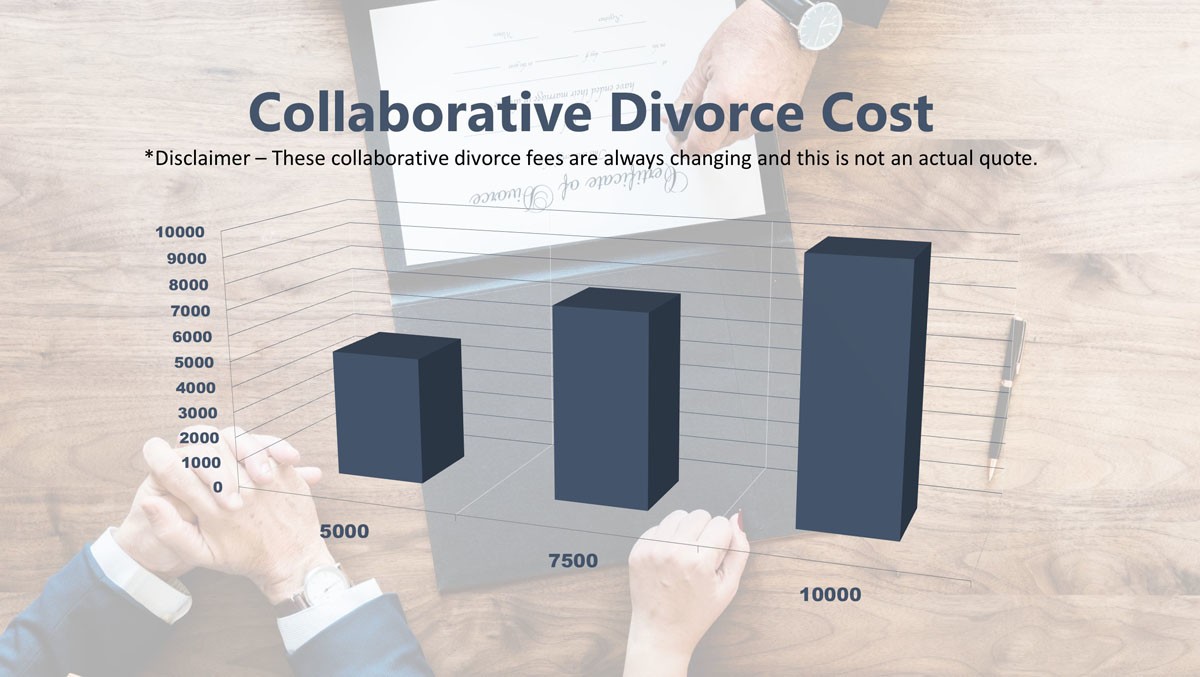What Is Guardianship?
Guardianship is an appointment made by the court for a specific entity or individual to make personal decisions and provide care for an adult who is incapacitated or for a minor.
The title given to the person to who a guardian is appointed in the above process is known as a ward.
A ward is an adult who is unable to communicate or express reasoned decisions for themselves to protect their own interests and welfare because of some physical or mental condition. Similarly, minors are made a ward because they cannot legally take those decisions for themselves.
Who Serves As A Legal Guardian?
An entity (for example, a private fiduciary holding a license to act as guardian for someone and receives payment for such a service) or an individual may serve as a guardian of an incapacitated adult or a minor. Usually, a public fiduciary does not act as a guardian on behalf of a minor.
In the case of a minor, the court will appoint a person who will act in the minor’s best interests. A guardian may be nominated by a minor ward who is 14 years in age or older.
Any competent person may be appointed guardian for a person who is incapacitated. Although the law states a list of priorities for this appointment, the court may appoint someone with a lower priority if it is deemed to be in the best interest of the ward. The highest priority will go to someone who has already had guardianship in another county or state. Then from highest to lowest the priority includes the adult nominated by the ward (if the court thinks the ward has the capacity to make an intelligent decision), a person nominated in the ward’s power of attorney, the spouse of the ward, an adult child of the ward, the wards parent, a person who was nominated in a Will or any relative who the ward has lived with for more than six months.
Before being appointed as a guardian, the individual is required to provide background information to the court, such as previous occasions the person acted as a guardian on behalf of someone, any felony history, and other information.
Establishing Child Guardianship In Arizona
In the state of Arizona, a “Consent Guardianship” gives parents the written consent option to grant legal authority of a child to a non-parent. This also allows for the withdrawal of consent and the authority of Guardianship. Also, this also means a non-parent cannot petition for Guardianship if contested by one of the parents. In a situation like this, the non-parent may attempt to establish custody of the child through what is known as a “non-Parent Custody” position. Contact Canterbury Law Group today if you are seeking a Consent Guardianship in Arizona.
Who Grants Legal Guardianship?
In Arizona, the legal guardianship of a minor will be granted by a probate court or a juvenile court. You may think of probate courts as places that oversee proceedings of probate and administering wills. However, these courts also appoint guardians. It is a requirement of Arizona law that individuals wanting to obtain legal guardianship over a minor to give the minor child’s parents and/or custodian a 60-day notice before the filing of a petition for guardianship. Furthermore, an individual wishing to obtain legal guardianship over a minor child must have to prove to the court that the guardianship is in the best interest of the child. When petitioning for the guardianship of an adult, the petitioner also must file in probate court as well. He or she must notify the proposed conservators of the ward, any adult children and current guardians.
How Is Guardianship Appointed?
A guardian may be nominated by any interested person who files for the appointment of a guardian with a court. Additionally, it may be nominated by a Will. An adult who is incapacitated or any person concerned with the welfare of said incapacitated adult may also petition the court for a finding of incapacity and the appointment of a guardian. You can download the forms for obtaining the appointment of a guardian at: https://superiorcourt.maricopa.gov/ and then clicking on “self-service center” and on “forms.”
Notice of the place and time of the hearing has to be personally served on the potential ward and specified by statute given to the other persons, who include the alleged incapacitated person’s spouse, adult children, parents, anyone currently serving as a conservator or as a guardian or anyone who has custody and care of the person as long as anyone else who asked to be notified and if it is the case there is no one to give notice then the closest living relative will be given notice.
An adult ward named in a petition of guardianship must be represented by an attorney. The ward may also choose to use an attorney with who the ward has a professional and established relationship. Or the court may appoint an attorney on behalf of the ward. The court also must appoint a court investigator and a physician who must submit reports to the court prior to the date of the hearing, after conducting an interview with the potential adult ward. The potential ward is, of course, to be present in person at the live court hearing.
For a minor guardianship, there is not a need for a report from a physician, and no attorney is appointed on behalf of the minor. Additionally, the minor’s parents, in this kind of guardianship must give their written consent to the appointment of a guardian on behalf of their minor child.
In certain circumstances, the court may appoint a guardian temporarily for a specific period or a specific purpose.
When Can Guardianship Be Granted?
Guardianship may be granted by a probate court ifs the parent of a minor child left instructions in their last will and testament. This is known as a “testamentary appointment.” Furthermore, an individual may petition the court for legal guardianship in a case where the court has decided to terminate the parental rights of the ward’s proposed parents. A court may grant legal guardianship when an incapacitated adult requires supervision and care.
How Long Does Guardianship Last In Arizona?
Guardianship may last until a minor child reaches the age of legal adulthood which in the state of Arizona is 18 years old. Usually, if guardianship is objected to by the parents of a minor child and their parental rights have not been terminated, they may petition the court for a guardianship termination, even if they consented previously. Guardianship is also terminated upon the death of the ward.
Guardian Duties
The responsibilities and powers of a parent are like those of a guardian. A guardian may make personal choices for the ward relating to living arrangements, social activities, education and the withholding of professional or medical care, advice and treatment. The guardian must always ensure the decisions that are made that serve the ward’s best interest. The guardian must always ensure the ward is living in an environment that is the least restrictive in which the ward can remain safe.
The guardian also must submit a written report to the court on an annual basis on the date on the anniversary of the guardian’s appointment. This report must contain information on the living and health conditions of the ward as well as an up to date report from the ward’s physician.
Can You Avoid Appointment Of Guardian?
Often if the adult has executed a valid Mental Health Care Power of Attorney, Health Care Power of Attorney for the end of life decisions, a Living Will, it may be that a guardianship is not needed. All these forms can be found under Life Care Planning at https://www.azag.gov/. An adult may only appoint an agent under the power of attorney if the adult is competent enough to understand the power of attorney documentation. Even if the adult successfully completes the living will and powers of attorney, they could still be subject to a guardianship proceeding. If someone thinks the person nominated to be the health care power of attorney is not acting in a way that is in the best interests of the incapacitated person, they can file a guardianship petition with the court.
Two Types Of Legal Guardianship In Arizona
There are two kinds of guardianship a person may petition the court for. However, they are different, and each has specific requirements to be met.
Title 8 Guardianship
- You do not need the consent of both parents, but Title 8 Guardianships are more difficult to obtain.
- Against the parents’ wishes, someone may apply for guardianship if they think it is not in the best interest of the child to remain with a legal parent (e.g. the parents are abusing drugs or alcohol or the children).
- Juvenile court grants the guardianship.
- These guardianships are permanent meaning the child will remain in your care until they are either 18 years old or the guardianship is revoked by a court order.
- There will be a hearing when attempting to obtain a guardianship. There will be evidence and testimony involved if a parent disagrees with the guardianship. The court may appoint a person to represent the child and make recommendations to the court as to what the best interests of the child are.
- These guardianships are also more difficult to terminate. Whoever wishes for a termination of the guardianship, must file a petition to do so. Once again, a hearing will be set, and testimony will be taken to determine if it is in the best interests of the child to terminate.
Title 14 Guardianship
- Although easier to obtain, Title 14 Guardianships must have the consent of both legal parents. The only exception to this is if a parent is deceased or their rights have been legally terminated.
- These are often used for short term guardianships. For example, if a parent is vacationing, out of town, working or during times of deployment abroad.
- The probate court grants the guardianship.
- The guardianship can be ended at any time by the legal parent. It is virtually impossible to prevent them from ending the guardianship.
- The legal parent must request through the court revocation of the guardianship and a hearing is then scheduled.
What Type Of Guardianship Is Best For Your Situation?
Guardianships are often complex and complicated especially when a legal parent contests the guardianship. You will want to consider the situation carefully before filing for the guardianship of a child. If you are aware both parents want only a temporary guardianship and both are willing to give consent to this, you will want to file a Title 14 Guardianship. Even with the consent of both parents but you require the guardianship to stay in place for an extended period, then you’ll want to file a Title 8 Guardianship. If both parents are non-consenting, you have no option and indeed are required to file a Title 8 Guardianship. There are no guarantees that you will prevail at court.
How Long Does The Guardianship Process Take In Arizona?
This is dependent on the kind of guardianship you are filing and whether you have the consent of the parents or not. Both Title 14 and title 8 move very quickly indeed if both parents give their consent. It may even be completed within the time frame of just one month. However, if a parent does not give consent, understand there may well be multiple hearings scheduled together with evidence gathering and investigations. This can all take several months or a year to complete and assemble. Therefore, it is very likely you will not have guardianship immediately. In the case that you believe this is an emergency, you can request the court put in place a guardianship that is temporary until all the other steps are completed for it to become permanent.
Do You Need An Attorney To Obtain Guardianship?
If you have the consent of both parents and you are good at handling paperwork, you should be able to accomplish this on your own. However, if you are not especially detail-oriented and one of the parents is not consenting, it is highly recommended you speak with an attorney who has dealt with both Title 8 and Title 14 guardianships.
Non-Parent Child Custody In Arizona
In Arizona, Arizona Revised Statute §25-415 entitled “Custody by Non-Parent define who and how a non-parent can gain custody of a child that is not theirs. A non-parent can file a petition in the County Superior Court where the child permanently lives or is currently located. The petition must include detailed facts that support the Petitioner’s right to file the petition, and they have an obligation to provide notice to all the following:
- The parents of the child.
- A person with visitation rights or Court ordered custody.
- The child’s Guardian ad Litem or guardian.
- An agency or person that has physical custody of the child or who claims to have visitation or custodial rights.
- Any agency or person who has previously appeared in the action.
- The Court will summarily deny the petition unless it discovers the Petitioner pleadings establish all the following are accurate and true:
- The person who files the petition stands in loco parentis to the child.
- It would be “significantly detrimental” to the child to remain or be placed in the custody of either the living legal parents of the child who wishes to obtain or retain custody.
- A Court of competent jurisdiction had not approved or entered an order concerning the custody of the child within one year before the person who filed the petition under this section unless there is a reason to think the child’s current environment may seriously endanger their physical, moral, emotional mental or moral health.
- Or if any single one of the following applies:
- One of the legal parents is deceased.
- The legal parents of the child are not married to each other when the petition was filed.
- And when there’s a pending proceeding for Dissolution of Marriage or for Legal Separation of the legal parents at the time of the petition being filed.
There is a “rebuttable presumption” available if a person other than the legal parent of the child is seeking custody that it is in the best interest of the child to award custody to the legal parents because of the psychological, emotional and physical needs of the child to be reared by the legal parent of said child. To rebut this presumption, the non-parent Petitioner must chow “clear and convincing evidence” that the awarding of custody to the current legal parent is not in the best interests of the child. Additionally, the Superior court may grant a person who stands as loco parentis to a child. This would include grandparents and great-grandparents, who meet the requirements of: Arizona Revised Statute §25-409 – this assures “reasonable visitation rights” to the child on a finding that it is in the child’s best interest to receive visitation and that any of the following are true:
- One of the legal parents has been missing for at least three months or is deceased.
- The legal parents of the child are not married to each other at the time of the filing of the petition.
- There is a proceeding that is pending for Dissolution of Marriage or the Legal Separation of the legal parents at the time the petition was filed.
A grandparent or great-grandparent who stands in loco parentis to a child may want a proceeding for Visitation Rights with a child. They must file a Verified Petition in the county where the child has been found or is a permanent resident. Click Grandparent’s Rights to learn more about the options available for Grandparents Visitation. For a free initial consultation contact us by email or call The Canterbury Law Firm for an appointment, today!
*This information is not intended to be legal advice. You can contact Canterbury Law Group today to learn more about your personal legal needs.
Sources
- State Bar of Arizona. “A Guide to Guardianship and Conservatorship.” State Bar of Arizona, www.azbar.org/legalhelpandeducation/consumerbrochures/aguidetoguardianshipandconservatorship/.
- Redsteer, Andrine. “Legal Guardianship in Arizona.” LegalZoom Legal Info, 21 Nov. 2017, info.legalzoom.com/legal-guardianship-arizona-21520.html.
- “Quick Guide to Guardianship Types in Arizona > My Modern Law.” My Modern Law, 12 Jan. 2018, mymodernlaw.com/quick-guide-to-guardianship-types-in-arizona/.






